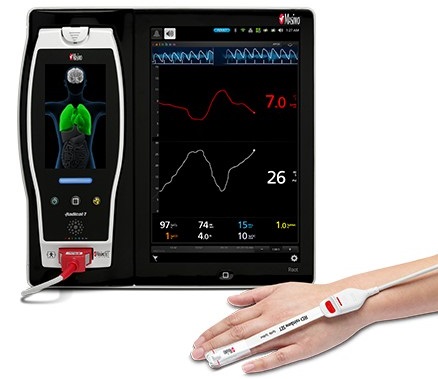
December 11, 2020 – Masimo announced the findings of an abstract in which researchers at Marmara University in Istanbul, Turkey investigated the efficacy of Masimo noninvasive and continuous hemoglobin monitoring, SpHb, as part of the transfusion management of pediatric patients undergoing major surgery.
The researchers found that use of SpHb was associated with decreased rate of postoperative transfusion, reduced length of ICU stay, and other improved outcomes.
Noting that traditional methods of measuring hemoglobin and estimating blood loss as part of perioperative blood transfusion management are “time consuming” and may cause delays in decision making, the researchers sought to investigate whether use of a noninvasive, continuous method, Masimo SpHb, would have an impact on transfusion rates, morbidity, and mortality in pediatric patients undergoing craniosynostosis surgery.
The researchers found that the length of stay in the ICU was statistically significantly higher in the control group than the SpHb group. Postoperative drainage, red blood cell transfusion, and fresh frozen plasma transfusion in the ICU were also statistically significantly higher in the control group than the SpHb group. Lactate levels were higher in the SpHb group at the start of the operation, but higher in the control group at the end.
The researchers concluded, “Noninvasive continuous hemoglobin monitoring in major hemorrhagic surgeries in pediatric patients might be effective in reducing morbidity not only by reducing the amount of transfusion but also [by] leading to less metabolic and hemodynamic instability.”
